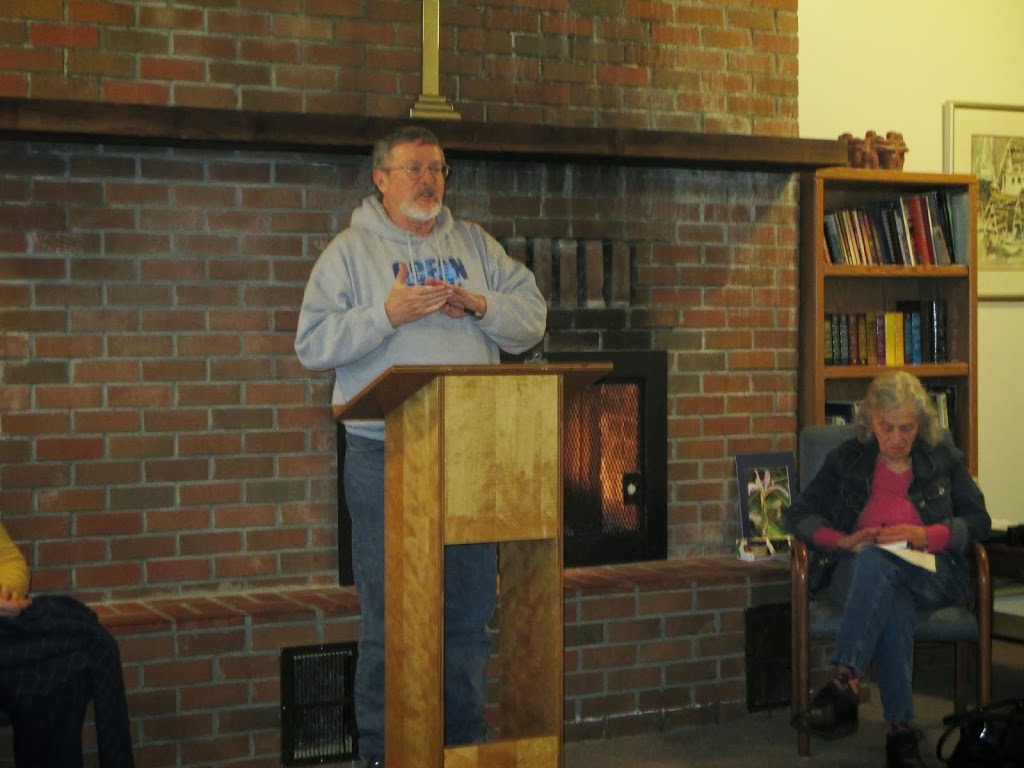 |
| Fearless Leader John |
Just returned from Writer’s Weekend at the Beach in Washington State, where the wi-fi was feeble, the weather was fussy, but the attendees were fabulous. So much dedication to the writing craft! It got me thinking: what do fiction writers want to know more than anything?
Writing Tip for Today: If you are a new writer or you’re trying to market your first novel, you almost always want to know where you can find a good agent. But here are three questions that many new writers (and their fiction stories) REALLY need to answer:
Is the Main Character in Enough Trouble?
Many new or first-time novelists understand that they must give their story conflict, tension, people-at-each-others’-throats. But think about this in a different way. Answer these questions: What does your Main Character (MC) want MORE THAN ANYTHING and 2) What are the CONSEQUENCES if MC does not achieve this goal? The reason it’s a good idea to know these answers is that even voracious readers often perceive published novels’ stories in a vague way. It’s deceiving, though. Well-written stories that stick with you are carefully crafted with HIGH STAKES. Meaning that there is a lot on the line. If you ask the 2nd question, (sometimes phrased as “So what?”) you can often detect if the stakes are high enough. Even if your novel appears to pass the test, try to think of at least one way to raise those stakes even higher. Try adding a “Time Squeeze” of the clock ticking, or introduce a larger consequence. For instance, you might layer your MC’s PERSONAL consequences with consequences in the community, a country or even the world if the goal is not met.
How Do You Handle Cold Mashed Potatoes?
More groans and complaints come to me concerning back story or flash backs than any other Act I problem. If you can let go of your need to tell the reader everything you know about MC in the opening pages, you can use both the Cold Mashed Potato Rule and the Rule of Three to tame your flash back tendencies. The Cold Mashed Potatoes Rule is all about where in time the reader is. If you show a character about to eat a bite of steaming buttery mashed potatoes but then character’s “mind reels back,” The potatoes are stuck in midair while Character remembers the flashback. The longer you stay in the flashback, the faster the reader forgets where the Real Time Scene is taking place. By the time you end the flash back, Character’s Mashed Potatoes are probably cold. Instead, try using the Rule of Three: For every 3 sentences of back story (flash back) stop and return to the Real Time Scene, even if only briefly.
Do You Know the Wilson Principle?
Many first-ees open a story with a single character, sitting somewhere thinking. And thinking. (It’s a sneaky excuse for flash back!) This traps readers in the Character’s head and is not active. In the Tom Hanks’ movie, “Castaway,” Tom Hanks invented “Wilson,” a volleyball Hanks talked to and interacted with as he was stranded on the deserted island. You can keep readers interested too, by getting another character on stage FAST. Tell a bit about the problem (OK and maybe a teensy bit of backstory–see the Rule of 3!) as you WEAVE it around the action and dialogue. Remarkably, readers are willing to swap back story for action nearly every time. Try these 3 tips–they really work!





Thank you for the tips, they were very helpful! I especially liked the Cold Mashed Potato Rule and the Wilson Principal. The catchy names will certainly help me to remember the tips!
Beth, I’m so glad you liked the tips! Come back soon (I post on Mondays & Wednesdays) and KEEP WRITING! ~Linda